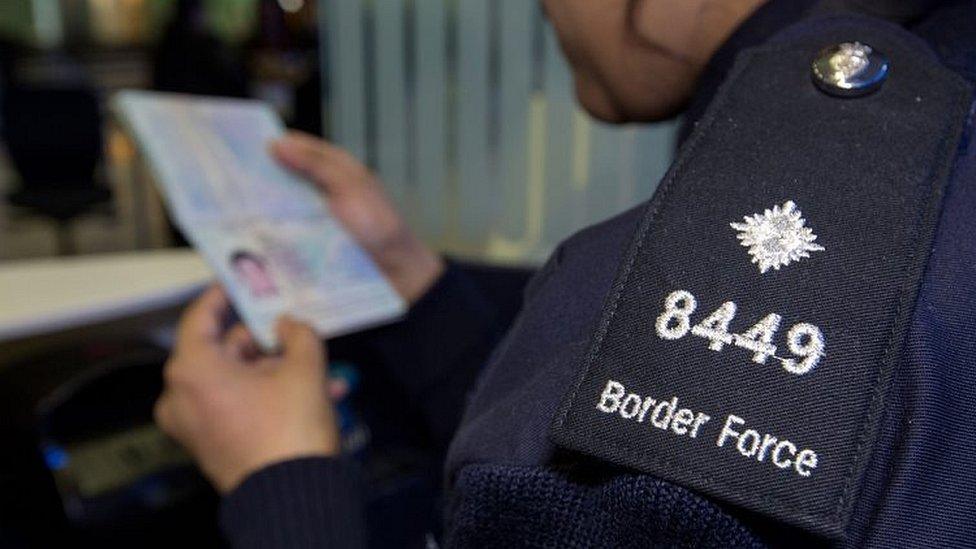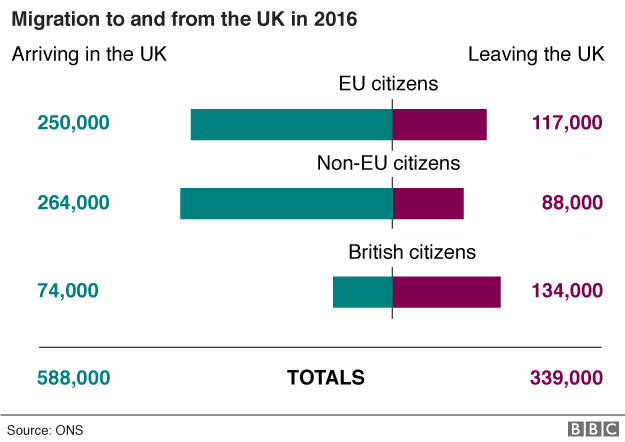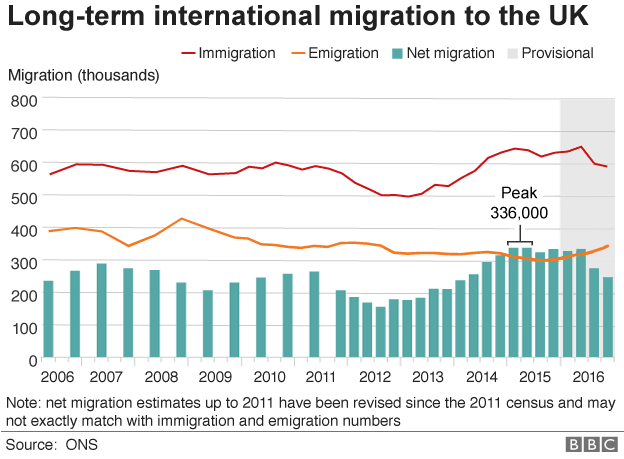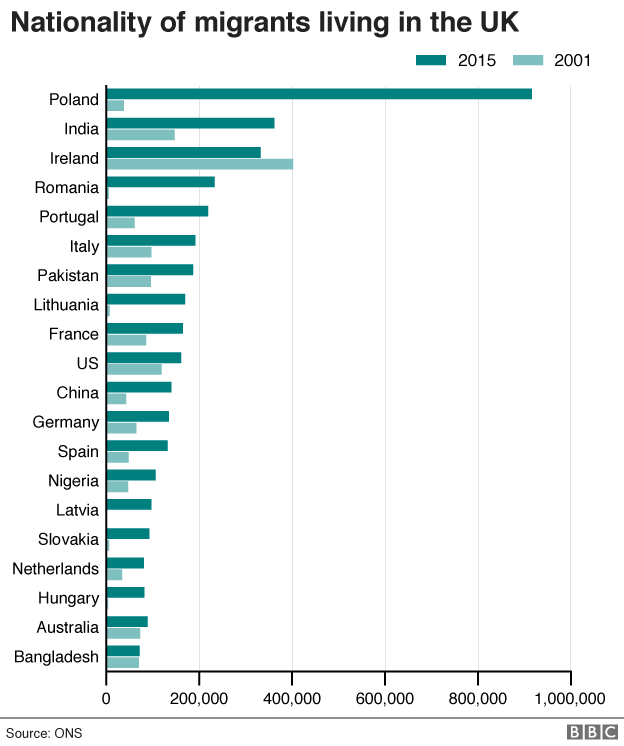Net migration to the UK falls to 248,000 in 2016
- Published

Net migration to the UK was estimated to be 248,000 in 2016 - a fall of 84,000 from 2015, figures show.
The Office for National Statistics, external said the change was driven by "a statistically significant" increase of 40,000 people leaving the country.
These were mostly EU citizens - 117,000 emigrated, up 31,000 from 2015.
Net migration is the difference between people coming to the UK for more than a year, and the number of people leaving the UK for a year or more.
The ONS report for 2016 includes six months of data following the EU referendum.
Its figures for the year estimated immigration at 588,000, with emigration of 339,000. The difference between the two gives the total for net migration.
In 2016, the total number of people moving to the UK was made up of 264,000 non-EU citizens, 250,000 EU citizens and 74,000 British citizens.
The ONS figures are the last official migration data before next month's general election.
The Conservatives' aim since 2010 has been to reduce net migration to "the tens of thousands".


In its election manifesto, Labour said it was offering "fair rules and reasonable management of migration" - but dismissed targets as "bogus".
Amber Rudd, the Home Secretary, said: "It's good that the overall figure has come down now by nearly a quarter in a year.
"We're determined to make sure that we do continue to reduce the overall net migration number."
The new figures give the fullest picture yet of immigration around the EU referendum vote last year.
Britain's settlement following departure from the bloc is expected to include restrictions on free movement rules, although the precise arrangements for post-Brexit immigration are yet to be thrashed out.
Immigration from EU8 states - the Czech Republic, Estonia, Hungary, Latvia, Lithuania, Poland, Slovakia and Slovenia - was down by 25,000 to 48,000, while those leaving the country increased by 16,000 in 2015, to 43,000 last year.
These resulted in the smallest net migration estimate of 5,000 for this group of nations since they joined the EU in 2004.
For the overall figures, the last time net migration was below 250,000 was in the year to March 2014.
Work remains the most common reason for international migration, with 275,000 people coming into the UK for work in 2016 - down 33,000 from 2015.

The majority - 180,000 - had a definite job, similar to 2015, but fewer people came into the UK looking for work - 95,000, down 35,000 from 2015.
In 2016, more people left the UK with a definite job - 116,000 - than in 2015.
A total of 9,634 people were granted asylum or an alternative form of protection in the year ending March 2017.
In addition, 5,453 people were granted humanitarian protection under the Syrian Vulnerable Persons Resettlement Scheme over the same period.